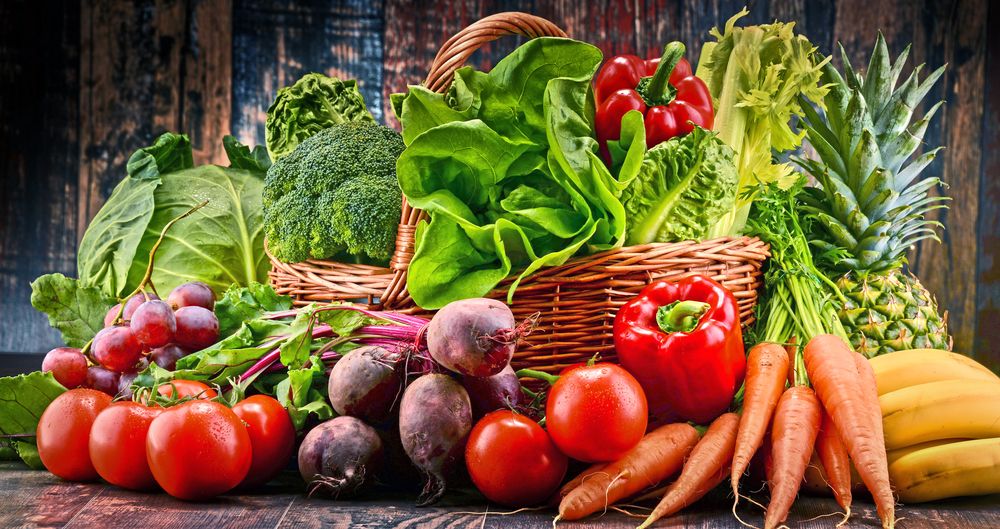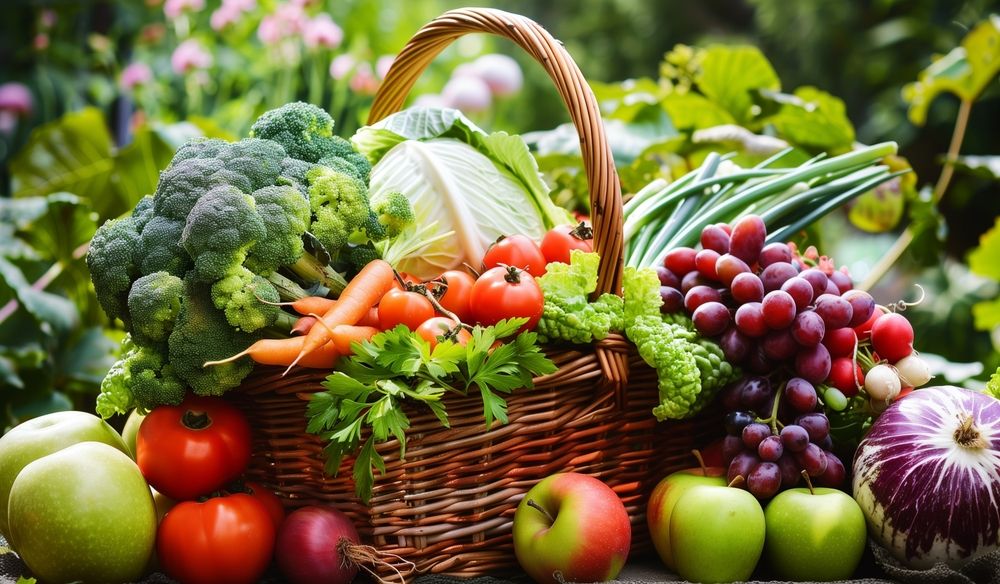
Vegetables are nutritional powerhouses, packed with essential nutrients like dietary fiber, antioxidants, phytonutrients, vitamins, and minerals. Beyond their impressive nutrient profiles, vegetables are linked to remarkable health benefits. Research consistently shows that a diet rich in vegetables can significantly reduce the risk of chronic conditions, such as heart disease and stroke.
Yet, despite their undeniable advantages, fewer than 10% of Americans consume the recommended daily servings of vegetables. As a registered dietitian and passionate advocate for all things veggie, I'm on a mission to change that. In this article, I’ll share my top 10 healthiest vegetables, the science behind their superpowers, and why they deserve a spot in your regular rotation. Plus, I’ll provide simple, practical tips to help you step outside your culinary comfort zone and seamlessly incorporate these nutritional gems into your meal plan.
Ready to transform your plate? Let’s dive in! And for even more inspiration, don’t miss The 30 Healthiest Foods to Eat Every Day.
10 Nutritional Powerhouses: The Healthiest Vegetables to Add to Your Plate
- Artichokes – Packed with fiber and antioxidants, these veggies support digestion and heart health.
- Beets – Rich in nitrates and phytonutrients, beets can boost endurance and support cardiovascular wellness.
- Brussels Sprouts – Loaded with vitamin C, fiber, and cancer-fighting compounds, they’re a cruciferous superstar.
- Carrots – Famous for beta-carotene, they promote eye health and provide a natural sweetness to meals.
- Edamame – These young soybeans are an excellent source of plant-based protein and heart-healthy fats.
- Mustard Greens – A bold-flavored green bursting with vitamins A, C, and K, plus powerful anti-inflammatory properties.
- Peas – Tiny but mighty, peas deliver plant protein, fiber, and essential micronutrients like vitamin K and manganese.
- Spinach – A versatile green packed with iron, magnesium, and antioxidants for overall vitality.
- Sweet Potatoes – These nutrient-rich tubers are a fantastic source of vitamin A, potassium, and complex carbohydrates.
- Watercress – A lesser-known leafy green brimming with vitamin K, calcium, and phytonutrients for bone and immune health.
Artichokes

Nutrition (Per ½ Cup Cooked Artichoke Hearts):
- Calories: 45
- Fat: 0 g (Saturated Fat: 0 g)
- Sodium: 50 mg
- Carbs: 10 g (Fiber: 5 g, Sugar: 1 g)
- Protein: 2 g
Artichokes are, without a doubt, my all-time favorite vegetable. While they might seem intimidating at first glance, they’re incredibly versatile and deliver serious nutritional benefits. Whether you opt for fresh, frozen, or canned artichoke hearts (my personal favorites), you’re treating your body to a nutrient-packed powerhouse with every bite.
Artichokes are among the best sources of dietary fiber, offering a satisfying 5 grams per ½-cup serving. Research suggests this fiber boost can aid in weight management while their impressive array of antioxidants and phytonutrients support immune health and lower the risk of heart disease.
If you’re new to artichokes, start with canned varieties packed in water (my favorite is from Trader Joe’s). They’re convenient and keep calories and fat in check. Finely chop them to add to pasta, salads, or quiches for a simple way to enjoy their rich flavor and health benefits.
Beets
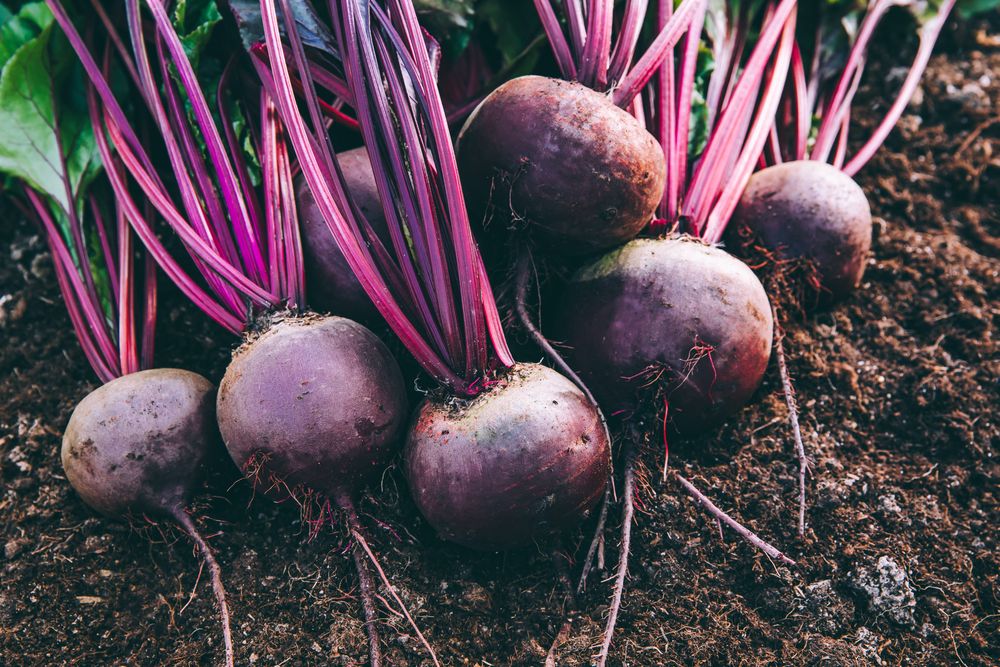
Nutrition (Per ½ Cup Cooked Beets):
- Calories: 37
- Fat: 0 g (Saturated Fat: 0 g)
- Sodium: 65 mg
- Carbs: 8.5 g (Fiber: 2 g, Sugar: 7 g)
- Protein: 1 g
Beets may be a love-it-or-hate-it vegetable due to their earthy flavor, but they undoubtedly deserve a spot among the healthiest vegetables. Packed with fiber, antioxidants, and essential phytonutrients, beets offer impressive health benefits for the whole body. While available in both golden and red varieties, red beets are my personal favorite. Their vibrant red and purple hues are a sign of powerful phytonutrients that combat inflammation, neutralize free radicals, and promote gut and heart health.
Red beets are particularly popular with athletes for their ability to boost performance and aid recovery, thanks to their unique antioxidant profile and natural nitrates that improve blood flow.
Not sure how to enjoy beets? Roast them or pick up pre-cooked beets to toss into salads with goat cheese and walnuts for a classic pairing. Feeling adventurous? Puree them into smoothies—they pair beautifully with cocoa powder—or sip on beet juice as a refreshing recovery drink.
Brussels Sprouts
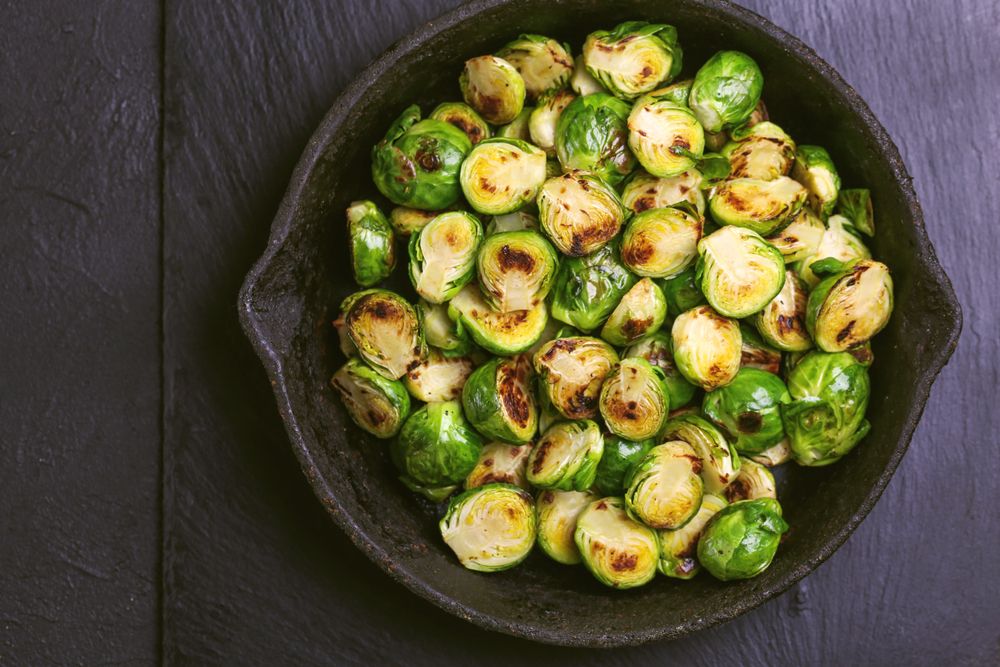
Nutrition (Per 1 Cup Cooked Brussels Sprouts):
- Calories: 65
- Fat: 1 g (Saturated Fat: 0 g)
- Sodium: 23 mg
- Carbs: 13 g (Fiber: 6 g, Sugar: 3 g)
- Protein: 6 g
Brussels sprouts are no longer the vegetable you dreaded as a kid—they’ve had a well-deserved renaissance! These mini cabbage-like gems are a nutritional powerhouse, offering 6 grams of filling fiber and just 65 calories per cup.
One of their standout health benefits lies in a compound called glucosinolate. When cooked, this phytonutrient transforms into isothiocyanates, which research suggests may protect cells and exhibit anti-cancer properties. This makes Brussels sprouts a smart addition to any diet focused on longevity and disease prevention.
In the kitchen, their versatility shines. Air fry them for a crispy, delicious side, roast them with your favorite sheet pan meal, or grab a pre-made Brussels sprout salad kit for a quick, nutrient-packed option. However you prepare them, these little veggies pack a big health punch!
Carrots
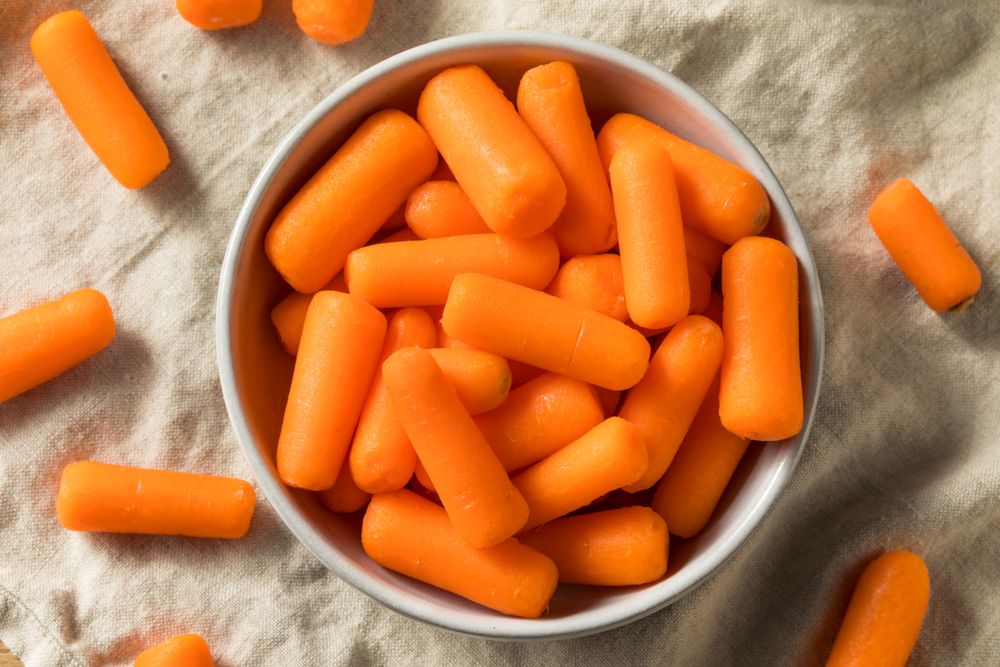
Nutrition (Per 1 Cup Sliced Carrots):
- Calories: 50
- Fat: 0 g (Saturated Fat: 0 g)
- Sodium: 84 mg
- Carbs: 12 g (Fiber: 3 g, Sugar: 6 g)
- Protein: 1 g
Carrots are the ultimate convenient snack—crunchy, delicious, and an easy way to meet your daily veggie goals. Affordable and versatile, they fit seamlessly into almost any budget or meal plan, proving that healthy eating can be accessible for everyone. Whether you’re blending them into energy bites, tossing them in salads, or adding them to soups, carrots are a fantastic way to boost your diet with more nutrients.
Carrots are low in calories but rich in fiber, delivering 3 grams per cup. They’re also packed with beta-carotene and antioxidants like lutein and zeaxanthin, which are well-known for supporting vision and eye health, especially as we age.
Need more reasons to munch on these vibrant orange veggies? Research suggests that their natural compounds may help reduce visceral and liver fat and improve insulin sensitivity. But a word of caution—overindulging in carrots can result in carotenodermia, a harmless condition that temporarily turns your skin a yellow-orange hue. If you notice a color change, it might be time to take a carrot break!
Edamame
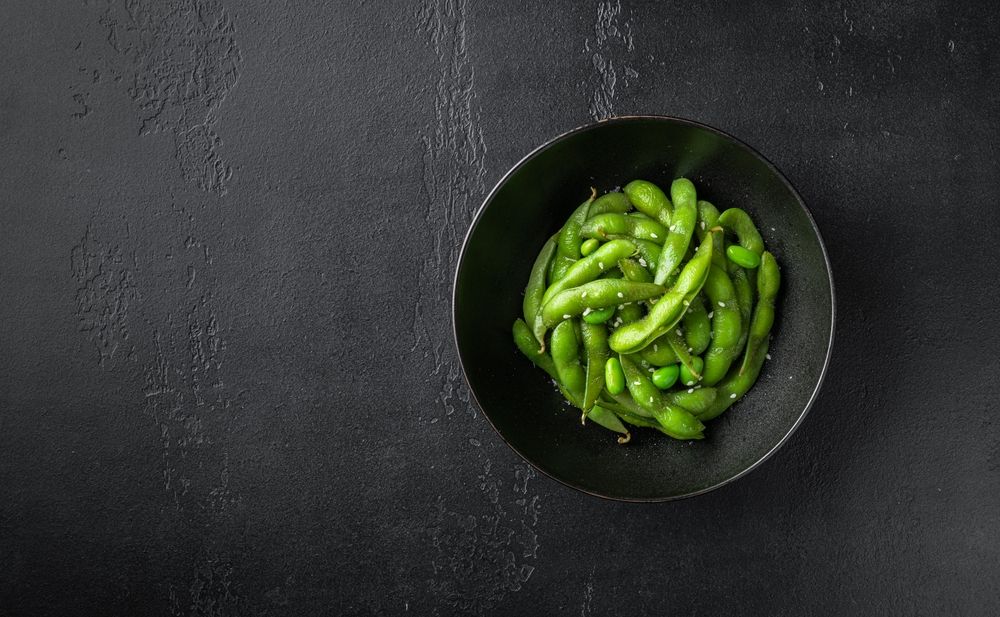
Nutrition (Per 1 Cup Cooked Edamame):
- Calories: 190
- Fat: 8 g (Saturated Fat: 1 g)
- Sodium: 9 mg
- Carbs: 14 g (Fiber: 8 g, Sugar: 3 g)
- Protein: 18 g
One of the smartest ways to meet both your vegetable and protein needs is by incorporating foods that deliver on both fronts. Enter edamame: a soy-based powerhouse rich in fiber, protein, and essential nutrients. A single cup provides 8 grams of fiber, helping to keep you satisfied and support weight management, along with 18 grams of plant-based protein to fuel your body.
Edamame is also a great source of potassium, a mineral shown to aid in lowering blood pressure. Research suggests that incorporating high-potassium foods like edamame into your diet may not only support heart health but also help lower cholesterol, reduce the risk of breast cancer, ease menopausal symptoms, and strengthen bone health.
Best of all, it’s simple to work edamame into your routine. Snack on roasted, lightly salted edamame for a quick bite, or toss a cup into bowls, salads, or stir-fries for an easy, nutrient-packed boost!
Mustard Greens
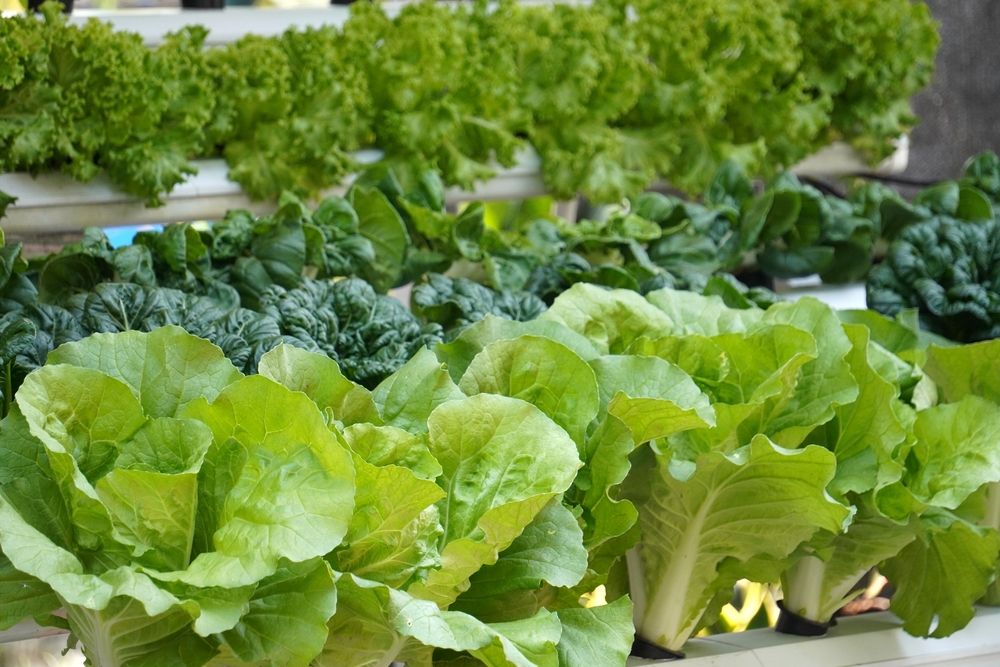
Nutrition (Per 1 Cup Cooked Mustard Greens):
- Calories: 36
- Fat: 1 g (Saturated Fat: 0 g)
- Sodium: 13 mg
- Carbs: 6 g (Fiber: 3 g, Sugar: 2 g)
- Protein: 4 g
Mustard greens, a staple in many cultural cuisines, are a nutritional powerhouse worth adding to your plate. While their bold, slightly peppery taste might be an acquired one, their incredible nutrient profile secures their spot among the healthiest vegetables. A 1-cup serving of cooked mustard greens offers 3 grams of fiber, 4 grams of protein, and a mere 36 calories, making them a satisfying, low-calorie option. Pairing them with a protein source, like canned beans or lean pork, and cooking them with a touch of oil turns them into a nutrient-dense, complete meal.
Beyond fiber and protein, mustard greens are rich in phytonutrients, including antioxidants that promote immune function, eye health, and overall vitality. Thanks to their generous vitamin C content, mustard greens are a fantastic addition to your meal plan—especially as cold and flu season approaches. Don’t overlook this leafy green gem!
Peas
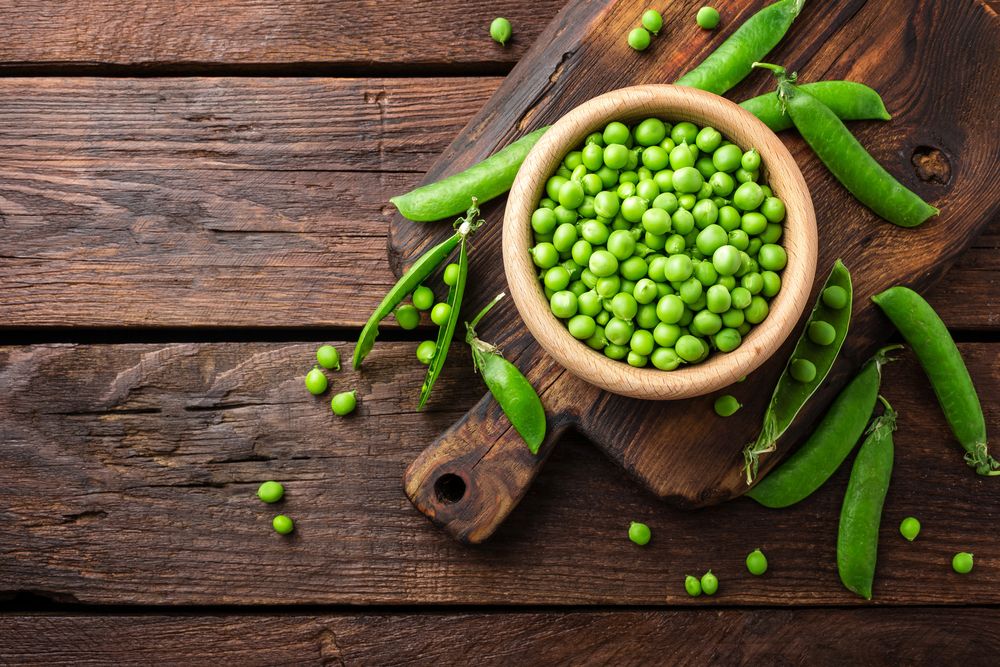
Nutrition (Per 1 Cup Cooked Peas):
- Calories: 70
- Fat: 0 g (Saturated Fat: 0 g)
- Sodium: 6 mg
- Carbs: 11 g (Fiber: 4.5 g, Sugar: 6 g)
- Protein: 5 g
Peas may be small, but they pack a powerful punch when it comes to nutrition. These versatile veggies are a solid source of both protein and fiber, making them a smart choice for a balanced diet. Whether you find them fresh in the produce aisle or opt for the convenience of canned or frozen options, peas are easy to incorporate into your meals. As a starchy vegetable, fresh peas are an excellent addition to your daily intake, while dried split peas offer the bonus of counting as both a vegetable and a plant-based protein.
Peas are also rich in phytochemicals, delivering health benefits that extend beyond basic nutrition. Research suggests their antioxidant properties help combat free radicals, their anticarcinogenic effects may reduce cancer risk, and their ability to lower cholesterol supports heart health.
Adding peas to your diet couldn’t be simpler. Open a can, rinse to reduce sodium, and blend with herbs and spices for a flavorful pasta sauce or dip. Or just toss them into soups, salads, or stir-fries for an easy nutrient boost. These tiny powerhouses are as delicious as they are nutritious!
Spinach
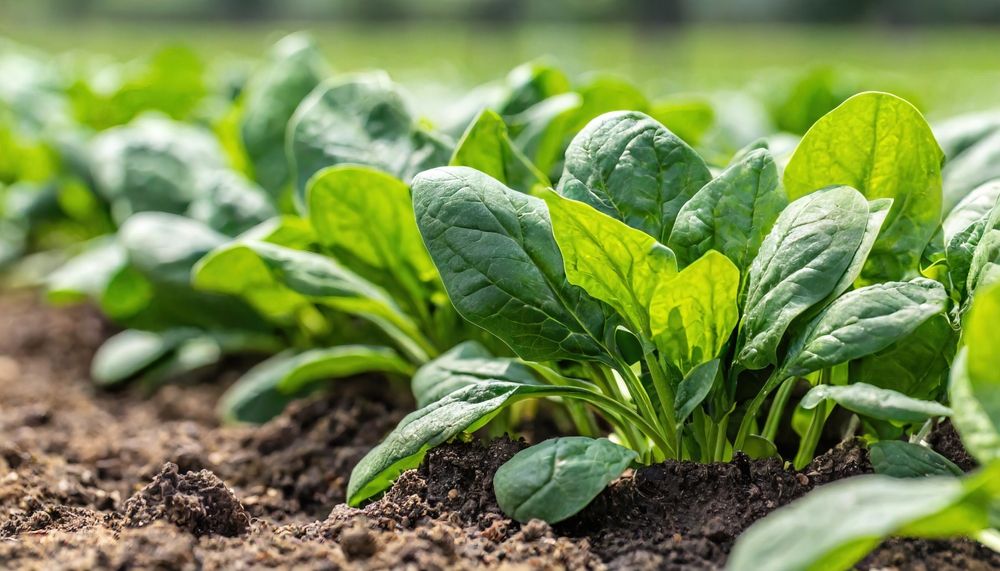
Nutrition (Per 1 Cup Raw Spinach):
- Calories: 7
- Fat: 0 g (Saturated Fat: 0 g)
- Sodium: 24 mg
- Carbs: 1 g (Fiber: 1 g, Sugar: 0 g)
- Protein: 1 g
Spinach is a classic leafy green that has rightfully earned its reputation as one of the healthiest options out there. Versatile and nutrient-dense, spinach seamlessly fits into both sweet and savory dishes. Blend it into smoothies, bake it into muffins or pancakes, or toss it into soups and salads for a quick nutritional boost. With just 7 calories per cup and a gram each of protein and fiber, it’s a lightweight addition that delivers big benefits.
Spinach also stands out as a heart-healthy champion. Research highlights the dietary nitrates in spinach, which support heart health by helping to lower blood pressure. Thanks to its light, airy texture, spinach is perfect for adding volume to your meals without overloading on calories, making it an excellent choice for any meal plan.
Sweet Potatoes
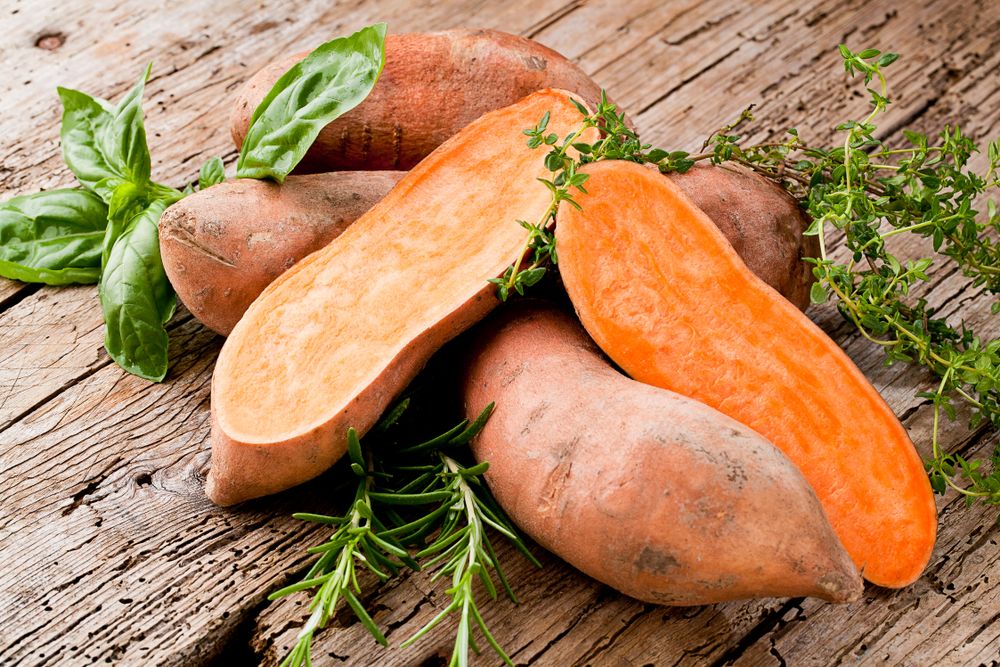
Nutrition (Per 1 Medium Sweet Potato):
- Calories: 103
- Fat: 0 g (Saturated Fat: 0 g)
- Sodium: 41 mg
- Carbs: 24 g (Fiber: 4 g, Sugar: 7 g)
- Protein: 2 g
Sweet potatoes often get compared to regular potatoes, but they’re entirely different plants with unique nutritional benefits. While regular potatoes are tubers, sweet potatoes are large, nutrient-packed roots that bring their own set of advantages to the table.
One standout feature of sweet potatoes is their impressive beta-carotene content, which converts to vitamin A in the body and supports eye health. They’re also loaded with antioxidants, helping to boost immune function, and they promote gut health with 4 grams of fiber per medium serving. These attributes make sweet potatoes a nutritional superstar.
Available year-round, sweet potatoes go far beyond their traditional role in holiday dishes. Whether baked into fries, stirred into chili, or layered into breakfast parfaits, their natural sweetness and versatility make them a favorite. (Fun fact: Among growers, “sweetpotato” is the official spelling!)
Watercress
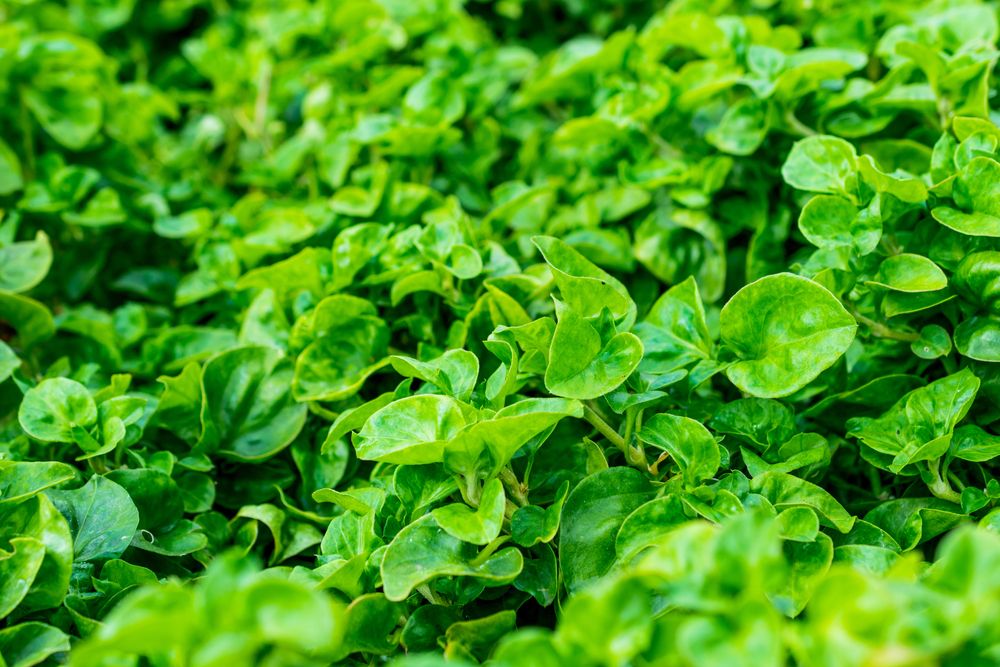
Nutrition (Per 1 Cup Raw Watercress):
- Calories: 4
- Fat: 0 g (Saturated Fat: 0 g)
- Sodium: 14 mg
- Carbs: 0 g (Fiber: 0 g, Sugar: 0 g)
- Protein: 1 g
If you’re new to watercress, prepare to be impressed! This aquatic vegetable, typically grown near water, has a long history of medicinal use dating back centuries. Today, it’s gaining recognition as a nutrient-packed powerhouse with an array of health benefits.
Watercress boasts an incredible profile of phytonutrients, including terpenes, polyphenols, glucosinolates, and more, all of which contribute to its health-promoting properties. Research links watercress to a range of benefits, such as antioxidant, antibacterial, anticancer, anti-inflammatory, and heart-protective effects, making it a valuable addition to any diet.
Like other leafy greens, watercress is wonderfully versatile. Add it raw to salads or pestos, cook it into soups, or blend it into combination dishes. For a creative twist, try adding watercress to your smoothies—Eat This! dietitian Lauren Manaker swears by it for an extra nutrient boost!

